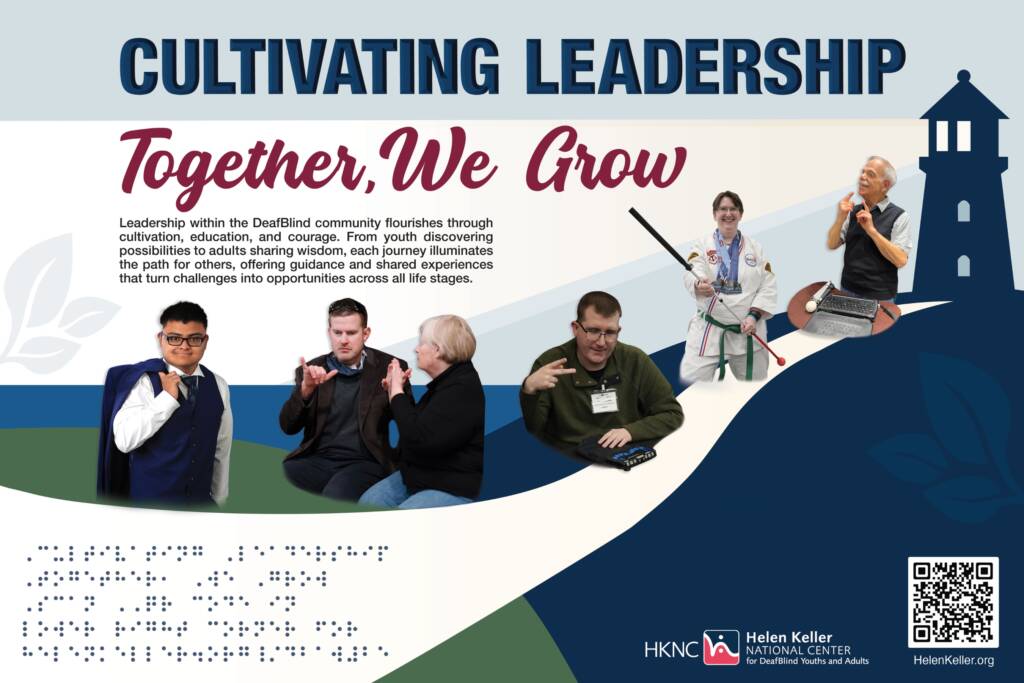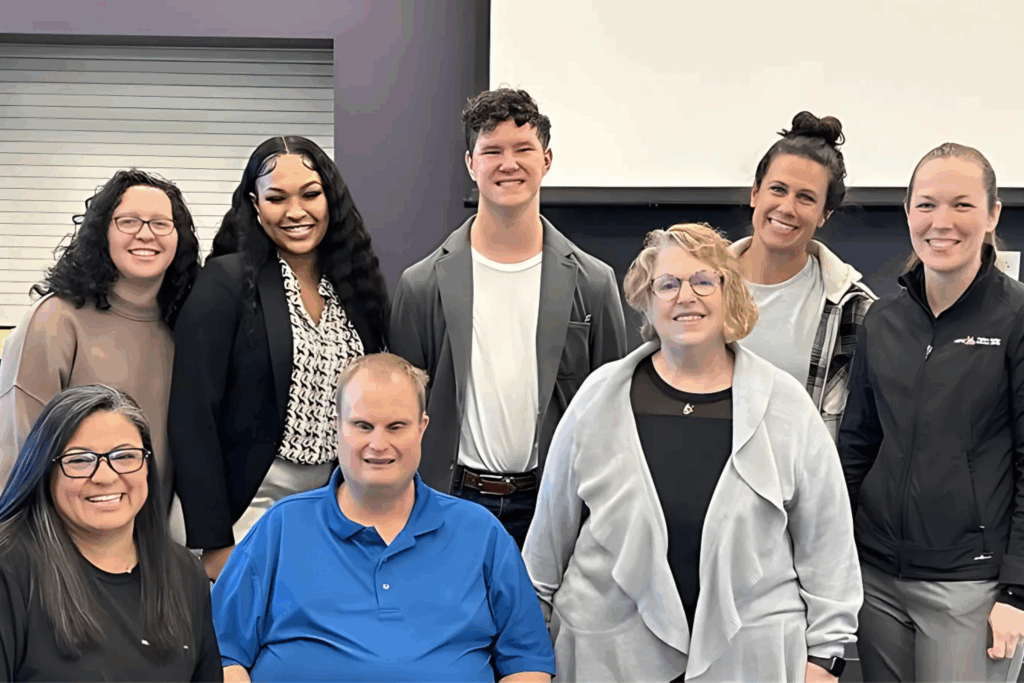KSL.com: Utah deaf and blind teens get to DJ, practice cooking with help of visitors from national center
Read about the skills two DeafBlind men named Randy Neumann and Simon Dodart have learned from instructors from the Helen Keller National Center.
By Jenny Carpenter, KSL.com
June 19, 2023
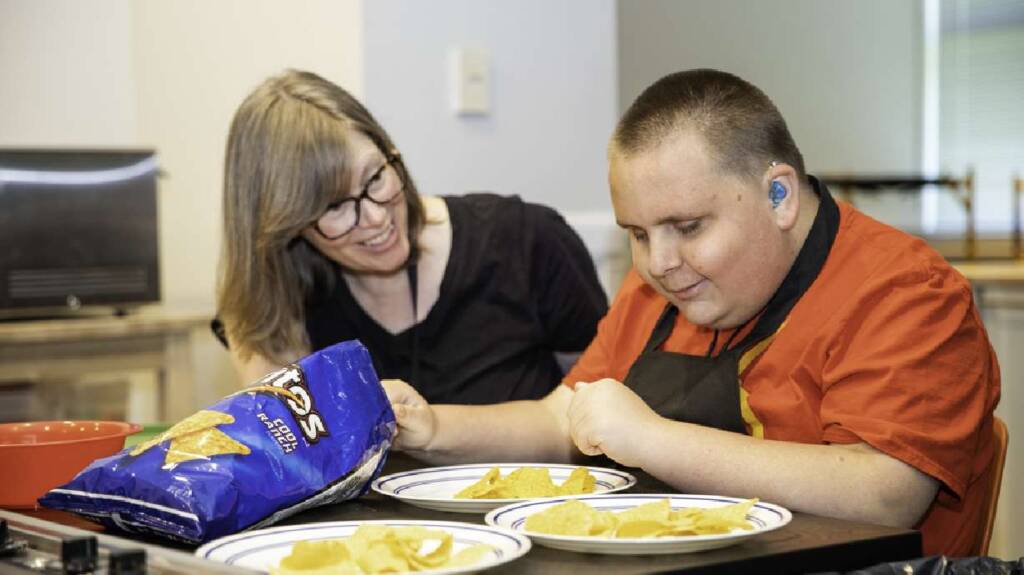
Original article on KSL.com’s website
SALT LAKE CITY — Simon Dodart and Randy Neumann are blind and have significant hearing loss — but that isn’t preventing Dodart from pursuing his dream of becoming a DJ and Neumann from exploring his love for cooking.
Dodart, 18, DJed in a public cafe for the first time with the help of the Helen Keller National Center, which visited Utah earlier this month. While Dodart has a strong passion for music, being deafblind and nonverbal can present some difficulties.
“The way he did that (DJed) was we set up an adaptive switch, so it had two components. So his left hand, he would start and stop the music, and with his right hand, he would progress the tracks. And he had an audience there and got to decide what music to play,” said Erin Farrer, program director for deafblind services with Utah Schools for the Deaf and the Blind. “He was so excited the whole time.”
As part of a first-of-its-kind visit to Utah, specialists from the Helen Keller National Center worked with the Utah Schools for the Deaf and the Blind to help Dodart and Neumann, 19, build bridges from education to employment. The young men are both considered to be at a “transition age” — meaning they’re preparing to go into the workforce — and thus need training on how to adapt to adult life with their disabilities, according to Farrer.
While specialists from the center stayed in Utah, they worked with Dodart for three days to give him opportunities to explore his passion for DJing.
Kaffe Mercantile, an Ogden coffee shop, also worked with Dodart’s mother Valorie Dodart and the Helen Keller National Center to make the DJing opportunity possible.
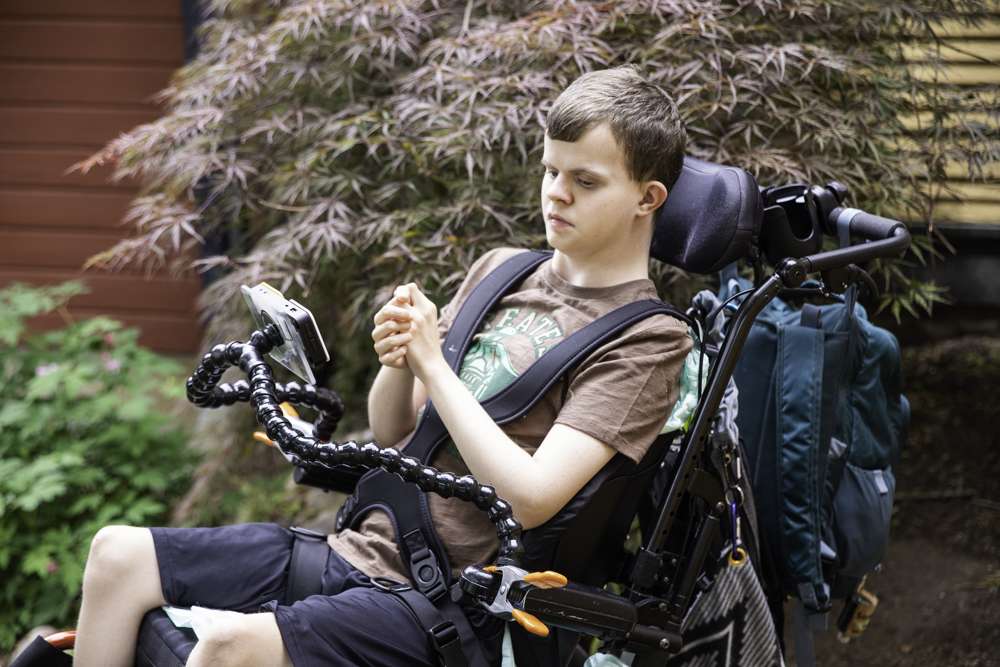
Valorie Dodart said that she especially enjoyed watching her son independently control the music and that the experience boosted his confidence.
“He was just very pleased with himself, so that was really nice to see him just so happy and — the confidence, you know, giving him some confidence that he was in control of that music completely, and he really liked that,” she said. “It’s just really nice, even for us to be able to continue to work with him — he’s developing the skills, but so are we to help him be successful.”
The Helen Keller National Center also explored a variety of other activities with Simon Dodart, Valorie Dodart said, including planting, vacuuming, cleaning a car and shredding paper.
And then it was Neumann’s turn to work with specialists from the center and the Utah Schools for the Deaf and the Blind, as well as the Utah Division of Services for the Blind and Visually Impaired. His activities included cooking several meals in hopes of improving his talents in cooking and reading Braille, according to Lara Leigh, a teacher at the schools.
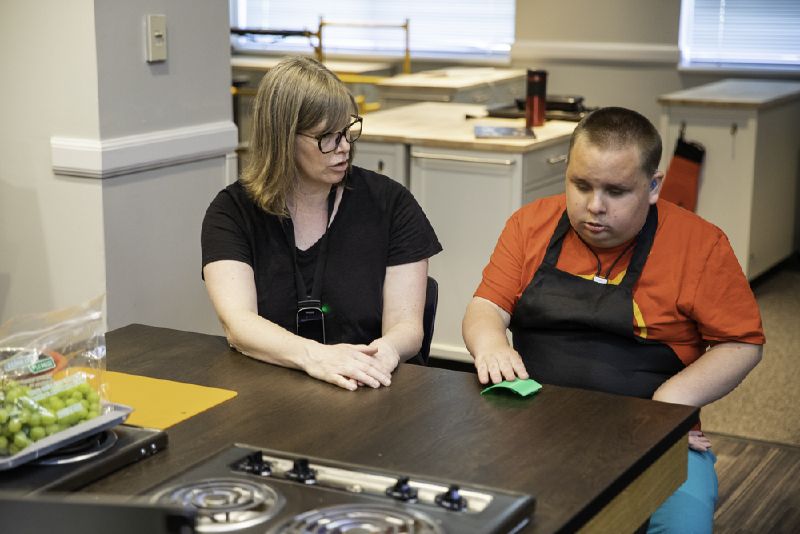
Teachers worked with Neumann to make a meatball pizza and nachos, Leigh said; Neumann also learned how to work with Braille measuring cups and use hand-guard equipment that would protect his fingers while cutting fruits and vegetables. Such practice will allow him to help his family with their meals later, she added.
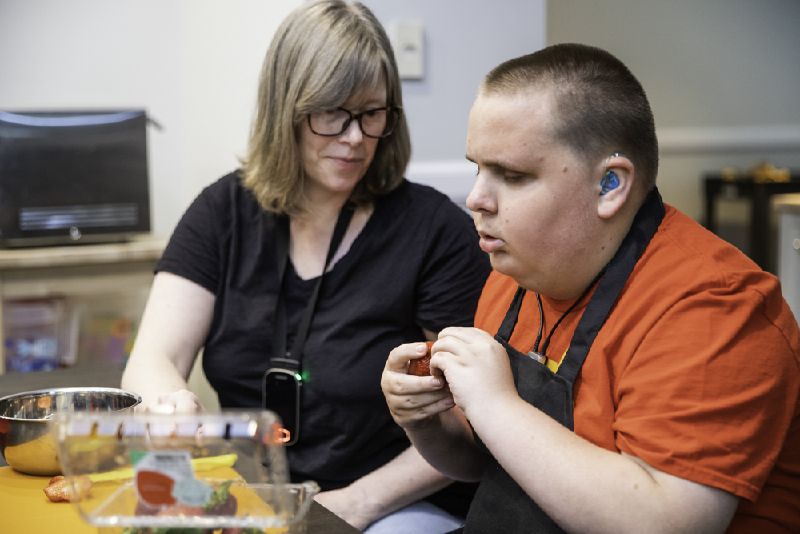
“That component of contributing to family dinner and kind of cleaning up and all those things is where he really finds a lot of pride and enjoys those things,” Leigh said.
Neumann also had an opportunity to practice stocking shelves at a Smith’s, where he learned how to put items away based on their texture and placement, Leigh said.
“Everyone, people that we reached out to in the community, were willing to help (with) anything that we needed,” Leigh said. “So that was really great to have that community involvement as well.”
Those who have either mild blindness or hearing loss can more easily transition to their respective careers, but according to the Utah Schools for the Deaf and the Blind, “When it comes to students who have blindness and profound deafness, with additional medical needs, the challenges become greater.”
That’s why, in years past, the Utah Schools for the Deaf and the Blind sent a student or two to the Helen Keller National Center’s headquarters in Sands Point, NY. There, they would learn how to apply their interests and skills to jobs that would suit their needs, according to Michael Richards, the center’s deafblind immersion experience coordinator.
This marked the first year representatives from the national center came across the country to help students in Utah.
“It was out of a need for the individuals. And so you know, some of our medical complications that would sort of prohibit travel, but also for learning and generalization,” Richards said. “(The training) happens better in their own functional environment.”
Valorie Dodart expressed her gratitude that the program was brought to her this year — as travel would be difficult for her son, who is nonverbal and travels in a wheelchair. The program would also provide community immersion and local resources that could help her child’s future.
“Our kids have to find jobs here or you know, fulfillment here, whatever that looks like, and developing those community partners. I think is just essential to their success,” she said.
Simon Dodart’s family and teachers said they could tell how much he enjoyed the activities based on his body language, as he also has several other disabilities in addition to deafblindness. Teachers could also tell Neumann’s enjoyment based on his verbal excitement, hand movements and facial expressions.
“It would be naive of us to say that it was every single thing was a success. But that’s why we do this, is to explore what they’re going to like,” Farrer said. “There were activities for both gentlemen that were more preferred than others. And you can tell by their demeanor.”
The successes, Valorie Dodart added, helped bring her and Simon hope for their futures.
“I’m really glad that we said yes (to the program) because I do think it’s really important for not only the individual to have that experience, to see a path to independence in that way — but also for their family and others to recognize that there is a path and that independence comes in many forms and they can be explored,” she said.
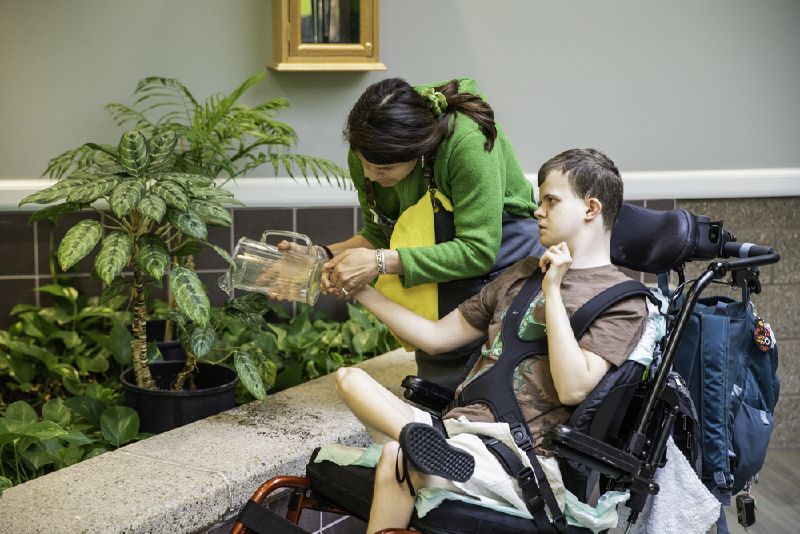
On June 9, after the individual training and sessions with Neumann and Dodart, those from the Helen Keller National Center met with professionals from all over Utah — including those from the Utah Schools for the Deaf and Blind, as well as the Utah Division of Services for the Blind and Visually Impaired — to instruct educators on how to help children and teenagers adapt to adult life with their disabilities.
Some examples Richards gave included giving them sensory tasks and objects (such as felt books and putting together letters and words with beads) that will allow the individual to remain engaged in the lesson. Overall, he encouraged the teachers to give assignments that teens will find meaningful, allowing them to cultivate patience as they learn the task in organized steps.
“We’re just trying to learn from our sister agencies there and just see how we can just provide the best support for our students,” Farrer said.
Richards and Farrer agreed that the first launch of a local involvement with the Helen Keller National Center was a huge success — and that hopefully, they’ll continue to collaborate on these projects for deafblind students.
“We’re really hoping that this can be a continuous thing where annually we get to focus on students and have him come and collaborate,” Farrer said.

